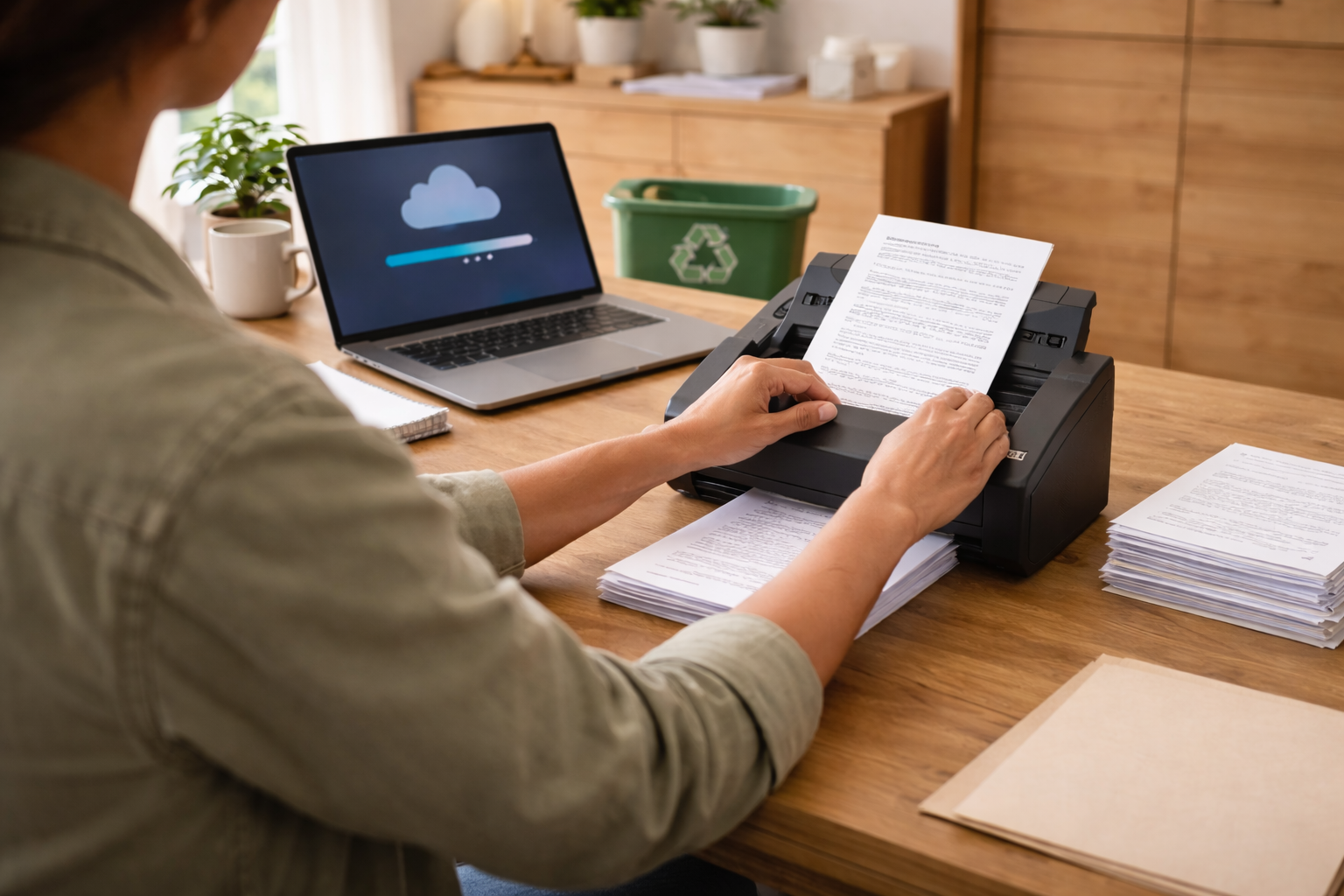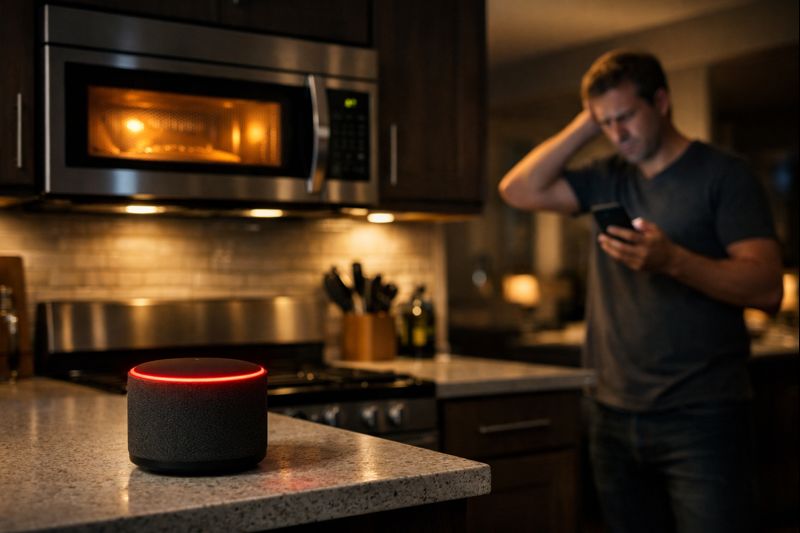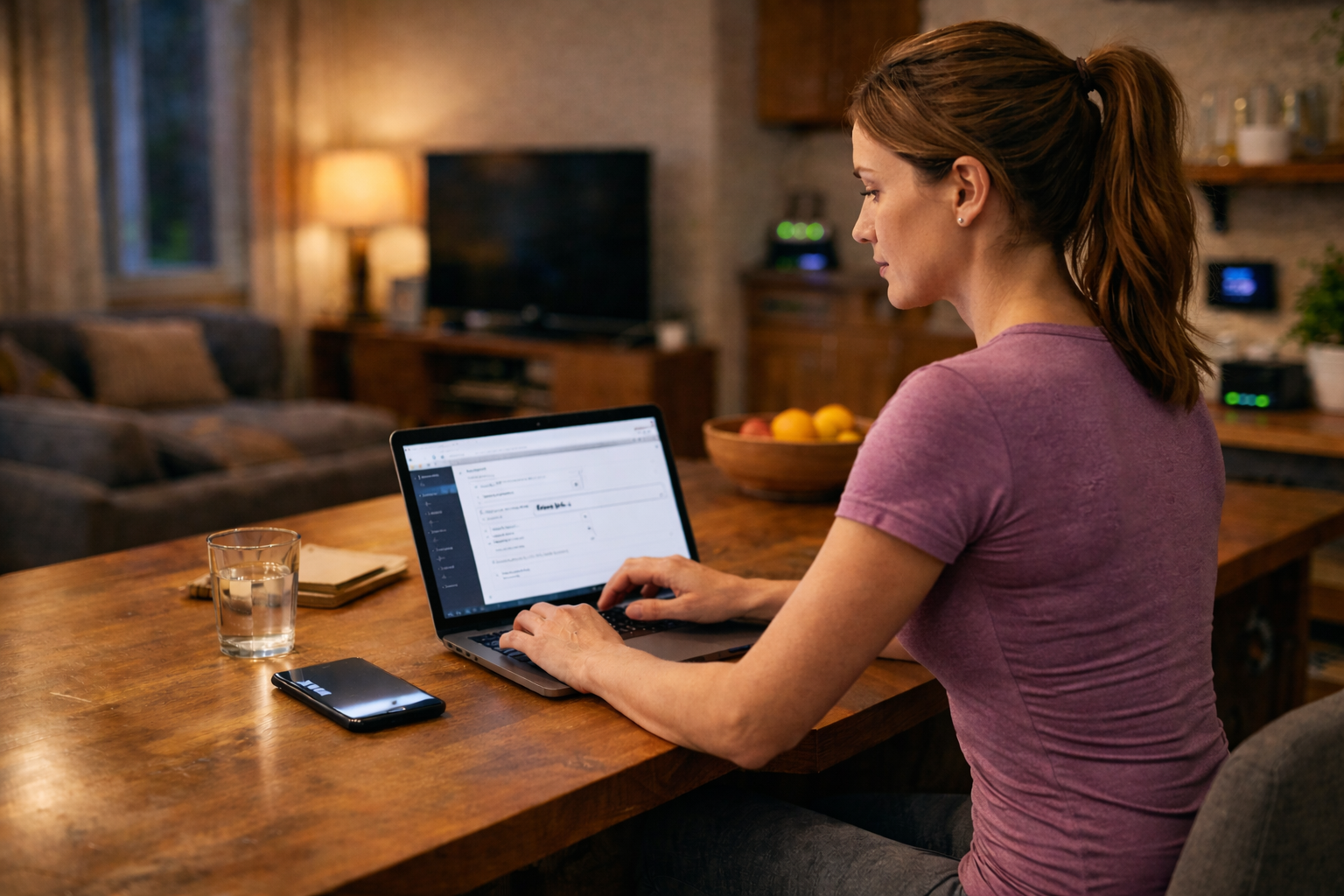In today’s connected world, free public WiFi feels like a gift. Whether you’re a student cramming in the library, a traveler waiting for your flight, or simply someone trying to avoid overage charges on your mobile data plan, public WiFi hotspots provide a welcome reprieve. But like many things that appear too good to be true, free WiFi often comes with hidden risks.
As we dive into October, the spookiest month of the year, it's the perfect time to talk about the hidden dangers lurking in free WiFi networks. In fact, October is also Cybersecurity Awareness Month, which makes this the ideal time to discuss the importance of protecting yourself online. Much like trick-or-treating can be fun but fraught with risks, connecting to unsecured networks can expose you to a host of cyberthreats.
In this post, we’ll delve into the spooky side of free WiFi, how cybercriminals use it to trick unsuspecting users, and what you can do to protect yourself—because sometimes, that "free" connection might come with a cost you can’t afford to pay.
Feel free to jump to the sections that interest you the most:
- The allure of free WiFi
- The hidden risks of Free WiFi
- Real-life consequences
- How to protect yourself
- Additional best practices
The allure of free WiFi
Let’s face it: everyone loves something that’s free. In today’s fast-paced world, where most of us rely on the internet for work, entertainment, and staying connected, the prospect of free WiFi is too tempting to resist. Coffee shops, airports, hotels, and even public parks offer free internet access, making it easy to check emails, catch up on social media, or work remotely.
But just as not all candy handed out on Halloween is safe, not all WiFi networks are created equal. Behind many free WiFi hotspots lie serious risks.

The hidden risks of free WiFi: What’s lurking behind the signal?
While the convenience of free WiFi is undeniable, connecting to unsecured networks can expose you to a range of cyberthreats. Many public WiFi networks lack encryption, making it easier for hackers to snoop on your online activity. Here’s a look at some of the most common cyberthreats lurking in free WiFi connections:
1. Man-in-the-middle (MITM) attacks
A MITM attack occurs when a hacker secretly intercepts and relays communications between two parties. When you connect to a public WiFi network, a cybercriminal can position themselves between you and the website or service you’re accessing. They can intercept sensitive information, including passwords, financial details, and private communications, without you ever realizing.
2. Fake hotspots
Also known as “honeypot networks,” fake hotspots are rogue WiFi networks set up by hackers. They mimic legitimate networks, tricking users into connecting to them. Once connected, the hacker can monitor your activity, steal your information, and even inject malware into your device.
3. Packet sniffing
Packet sniffing is a technique used by cybercriminals to capture data transmitted over a network. When you connect to an unsecured WiFi network, your data is often sent in plain text, making it easy for hackers to "sniff" your personal information, such as emails, passwords, and credit card numbers.
Real-life consequences: What can happen if you use free WiFi carelessly?
While the thought of a cybercriminal stealing your data may seem abstract, the consequences of using free WiFi without proper precautions can be very real—and costly. Let’s look at some real-world consequences of using unsecured networks:
- Identity theft: Hackers can steal your personal information, such as your name, address, and Social Security number, leading to identity theft. This can have long-term effects on your financial well-being, credit score, and even your ability to get loans or credit cards.
- Financial fraud: Cybercriminals who gain access to your online banking credentials can empty your accounts, make unauthorized purchases, and rack up charges on your credit cards.
- Data breaches: If you're using free WiFi for work, accessing sensitive company data on an unsecured network can lead to a data breach, putting your company’s confidential information at risk and potentially damaging your professional reputation.
One wrong move on free WiFi could lead to your personal and financial information being compromised. With the rise of cybercrime, you can't afford to let your guard down.
How to protect yourself: The importance of using a VPN
The good news is that you don’t have to avoid free WiFi altogether to stay safe. With the right precautions, you can still enjoy the convenience of public WiFi without falling victim to cybercriminals. One of the most effective ways to protect yourself is by using a VPN (Virtual Private Network).
What is a VPN?
A VPN is a tool that creates a secure, encrypted connection between your device and the internet. It acts like a private tunnel for your data, protecting it from prying eyes. When you connect to a VPN, your internet traffic is encrypted, making it much harder for hackers to intercept your data.
How VPNs help keep you safe on public WiFi
- Encryption: VPNs encrypt your data, making it unreadable to anyone who tries to intercept it. Even if a hacker manages to capture your data, they won’t be able to make sense of it.
- Anonymity: A VPN masks your IP address, making it harder for cybercriminals to track your online activities or trace them back to you.
- Protection on unsecured networks: VPNs provide a secure connection even when using public or unsecured WiFi networks, giving you peace of mind while browsing.
Using a VPN is one of the most effective ways to keep your data safe while connected to free WiFi. Whether you're working remotely or simply checking your email at a café, a VPN help ensure that your sensitive information stays protected.
Additional best practices for staying safe on public WiFi
While a VPN is a great tool for staying safe on public WiFi, there are additional steps you can take to help protect yourself. Follow these best practices to reduce your risk of falling victim to cybercriminals:
1. Avoid accessing sensitive information
When connected to public WiFi, avoid accessing sensitive accounts, such as online banking, shopping, or anything that requires you to enter personal information. Wait until you're on a secure, private network to log in to these sites.
2. Disable automatic connections
Many devices are set to automatically connect to available WiFi networks. This feature, while convenient, can inadvertently connect you to unsafe or fake hotspots. Disable this setting in your device's network preferences to prevent automatic connections to unsecured networks.
3. Enable two-factor authentication (2FA)
Two-factor authentication adds an extra layer of security to your online accounts. Even if a hacker manages to steal your password, they won’t be able to access your account without the second factor, such as a code sent to your phone.
4. Use HTTPS-only websites
Always ensure that the websites you visit on public WiFi use HTTPS encryption. HTTPS websites provide an added layer of security by encrypting the data sent between your browser and the site. Look for the padlock symbol in the URL bar or the “https://” prefix.
The dark side of free WiFi: Is it worth the risk?
While free WiFi offers convenience, the risks are real. You may save on data costs in the short term, but the potential for long-term damage from a cyberattack is far greater. Whether it’s identity theft, financial fraud, or a data breach, the consequences of using unsecured networks can be devastating. Before you connect to public WiFi, ask yourself: Is it worth the risk? If you do need to use public WiFi, always prioritize security by using a VPN, following best practices, and remaining vigilant about the networks you connect to.
Trick or treat—Stay safe or get caught in the web
As October marks both Halloween and Cybersecurity Awareness Month, it’s the perfect time to remind yourself to stay vigilant when using free WiFi. Just as trick-or-treaters need to be cautious about where they collect their candy, you need to be cautious about where and how you connect to the internet. The hidden dangers of public WiFi are real, but with the right precautions—like using a VPN, disabling automatic connections, and avoiding sensitive activities—you can help protect yourself and enjoy the benefits of staying connected, wherever you are. Don’t let cybercriminals trick you. Take control of your online security and stay safe while using free WiFi. After all, cybersecurity is no treat—it’s a necessity.Frequently Asked Questions
Content Disclaimer - All content is for informational purposes only, may require user’s additional research, and is provided “as is” without any warranty, condition of any kind (express or implied), or guarantee of outcome or results. Use of this content is at user’s own risk. All third-party company and product or service names referenced in this article are for identification purposes only and do not imply endorsement or affiliation with Quantum Fiber. If Quantum Fiber products and offerings are referenced in the content, they are accurate as of the date of issue. Quantum Fiber services are not available everywhere. Quantum Fiber service usually means 100% fiber-optic network to your location but, in limited circumstances, Quantum Fiber may need to deploy alternative technologies coupled with a non-fiber connection from a certain point (usually the curb) to your location in order to provide the advertised download speeds. ©2026 Q Fiber, LLC. All Rights Reserved. Quantum, Quantum Fiber and Quantum Fiber Internet are trademarks of Quantum Wireless LLC and used under license to Q Fiber, LLC.








